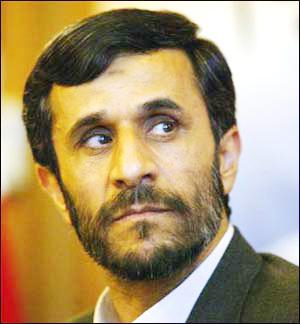 Latin America rarely comes up as a major issue in US presidential races, but this time it will; there are growing signs that Iran’s rising presence in the region will become a contentious election topic.
Latin America rarely comes up as a major issue in US presidential races, but this time it will; there are growing signs that Iran’s rising presence in the region will become a contentious election topic.
Republican hopeful Mitt Romney and leading Republicans in Congress are stepping up their attacks on President Barack Obama for allegedly not doing enough to stop what they see as Iran’s intention to use Latin America as a launching pad for terrorist attacks against the United States.
The issue is drawing growing attention in Washington. On Thursday, as Iran launched its own region-wide Spanish-language TV network in Latin America — a follow-up to President Mahmoud Ahmadinejad’s fifth visit to the region in as many years — the Republican-controlled House Foreign Affairs Committee held hearings about “Iran’s agenda in the Western Hemisphere.”
The hearings came hours after US National Intelligence chief James Clapper stated that Iranian officials “are now willing to conduct an attack in the United States.” Clapper did not explicitly suggest that such attacks would come from Latin America, but Republican congressional leaders did.

House Foreign Affairs Committee Chairman Ileana Ros Lehtinen, R-Miami, said in her opening statement that Iran’s alliance with Venezuela, Nicaragua, Cuba and Ecuador “can pose an immediate threat by giving Iran a platform in the region to carry out attacks against the United States, our interests and allies.”
Recalling last year’s US government disclosure of a plot by Iran’s Quds Force to kill the Saudi ambassador on US soil, and a reported 2007 scheme by an Iranian diplomat in Mexico to launch a cyber-attack against the United States, Ros Lehtinen added that “the fact that the military arm of a state-sponsor of terrorism has its operatives in multiple countries in our hemisphere is certainly cause for alarm.”
In his testimony to the committee, University of Miami researcher Jose Azel warned of a nightmare scenario in which Iran could place nuclear weapons aimed toward US territory in Venezuela — much like the Soviet Union began to build nuclear bases in Cuba during the 1962 missile crisis.
Norman A Bailey, a Reagan administration official, said Venezuela is helping Iran circumvent international financial sanctions through the use of the Venezuelan financial system.
In addition, hard-liners stress that Iran-backed terrorist groups such as Hezbollah are likely to use friendly countries in Latin America as bases from which to prepare terrorist attacks elsewhere in the region.
Argentina has charged that Hezbollah, with Iran’s assistance, carried out the deadly bombings against the Israeli Embassy and a Jewish community centre in Buenos Aires in 1992 and 1994.
Romney has lashed out against Obama for allegedly failing to respond to Ahmadinejad’s ties to Venezuelan President Hugo Chávez, and in a Nov 22 Republican debate, he warned that Hezbollah’s activities “throughout Latin America” pose “a very significant and imminent threat” to the United States.
The Obama administration says Iran is a latent threat in Latin America, rather than a clear and present danger, and that it is watching Iran’s activities in the region closely. US officials also warn against a US over-reaction to unconfirmed reports about Iran’s activities there. Remember the weapons of mass destruction fiasco that led to the US invasion of Iraq, officials say privately.
Furthermore, a senior State Department official told me that Ahmadinejad is increasingly weak at home and isolated internationally and may be exaggerating the importance of his ties with Latin America “out of desperation” to show his people at home that he has not become an international pariah.
My opinion: It would be much better if Latin America came up in presidential debates in the context of a positive agenda, with proposals by the candidates to create a Trans-American Partnership, much like the ambitious Trans-Pacific Partnership free trade plan that Obama recently proposed for Pacific Rim countries.
But I’m afraid that, even without an escalation of the Iran conflict – such as if Israel were to launch a preventive attack against Iran’s nuclear facilities, and Iran retaliated by striking against Israeli civilian targets in Latin America, like it did in Argentina two decades ago – the Iran-Latin America connection will overshadow a much-needed discussion on enhancing US economic ties with Latin America.
© The Miami Herald, 2012. Distributed by Knight Ridder/Tribune Media Services.
